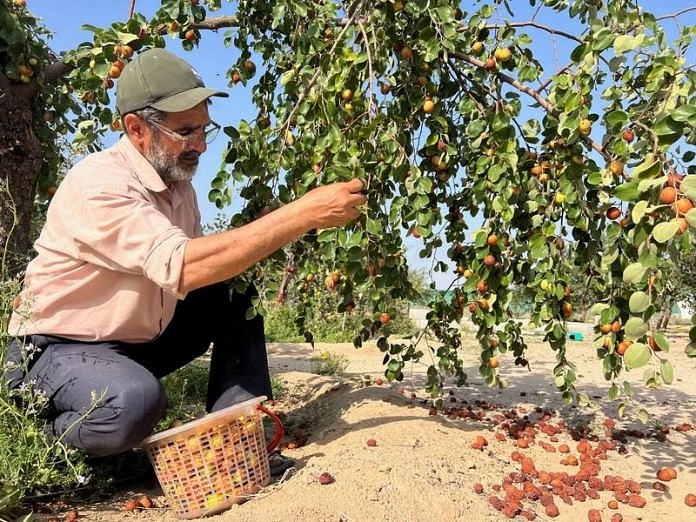In the heart of Iraq’s fertile lands, a tale of adaptation and resilience is unfolding as farmers grapple with a looming water crisis.
Faced with dwindling resources and a landscape marred by decades of conflict and environmental degradation, Iraqi farmers like Ismail Ibrahim are turning to innovative solutions to safeguard their livelihoods.
A date palm farmer, Ibrahim, found himself at a crossroads when his business began to falter due to scarce water resources.
However, instead of succumbing to despair, he chose to embrace change by diversifying his crops. In a bold move, he planted “sidr” trees, also known as jujube, which require significantly less water than date palms, making them well-suited to Iraq’s challenging conditions.
Iraq, often referred to as part of the “Fertile Crescent,” boasts a rich agricultural heritage spanning thousands of years.
However, the landscape’s once-abundant resources have been depleted by a combination of factors, including upstream damming of the Tigris and Euphrates rivers, lower rainfall trends, and prolonged armed conflicts.
As Ibrahim tended to his newly planted sidr trees, he highlighted their resilience and adaptability to Iraq’s harsh environment.
Unlike date palms, sidr trees thrive on minimal water and can even withstand salty groundwater—a crucial advantage in a region plagued by water scarcity and soil contamination.
Moreover, sidr trees offer a quicker return on investment compared to date palms. While date palms typically take at least five years to bear fruit, sidr trees start yielding harvests from their second year, providing farmers like Ibrahim with a more reliable source of income.
Abbas Ali, another farmer grappling with the consequences of the water crisis, shared his struggles with maintaining palm cultivation amidst rising salinity levels in the soil. The high salt content not only compromises the quality of the produce but also poses long-term challenges to soil health and fertility.
The water shortage, exacerbated by years of conflict and neglect, has pushed many farmers to the brink of despair.
Yet, amidst the challenges, there is a glimmer of hope as farmers like Ibrahim and Ali demonstrate resilience and ingenuity in adapting to changing conditions.
Iraq’s agricultural sector has borne the brunt of years of turmoil, from Saddam Hussein’s invasion of Kuwait to the devastating impacts of the 2003 U.S.-led invasion and the subsequent rise of Islamic State militants. However, with each setback comes an opportunity for innovation and renewal.
As Iraq strives to rebuild and revitalize its economy, the agricultural sector holds immense potential for growth and sustainability.
By embracing alternative crops like sidr trees and implementing measures to mitigate water scarcity and soil degradation, Iraqi farmers can chart a path towards a more prosperous and resilient future.
In the face of adversity, the resilience and resourcefulness of Iraqi farmers shine brightly, offering a beacon of hope for a nation striving to reclaim its agricultural legacy amidst the challenges of the modern world.
This article was created using automation and was thoroughly edited and fact-checked by one of our editorial staff members

